Indigenous Designer In Residence
School of Art, University of Manitoba, 2022
The Indigenous Designer in Residence was a month long residency at The School of Art at the University of Winnipeg focused on providing Indigenous graphic design and printmaking workshops to students, producing a series of my own work, and presenting an exhibition. The concept around the residency was using Wîhtikowkan (the backwards spirit) to consider the ways that consumer culture can act as a critical vehicle for traditional storytelling. Together we produced an action figure, serigraph posters, and a 3D model.
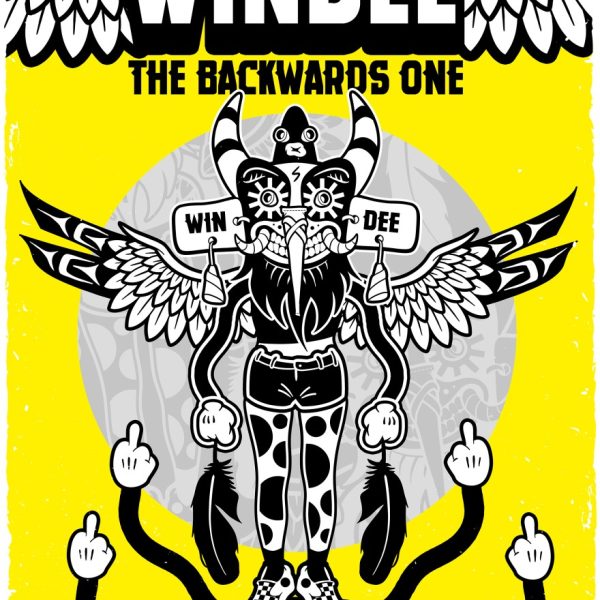
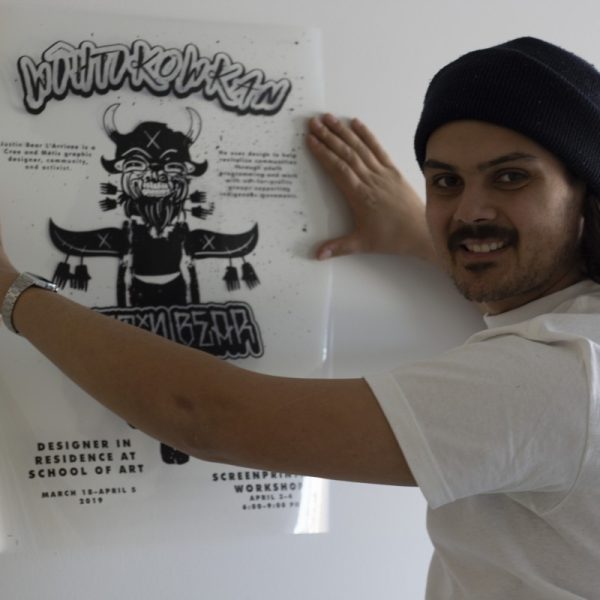
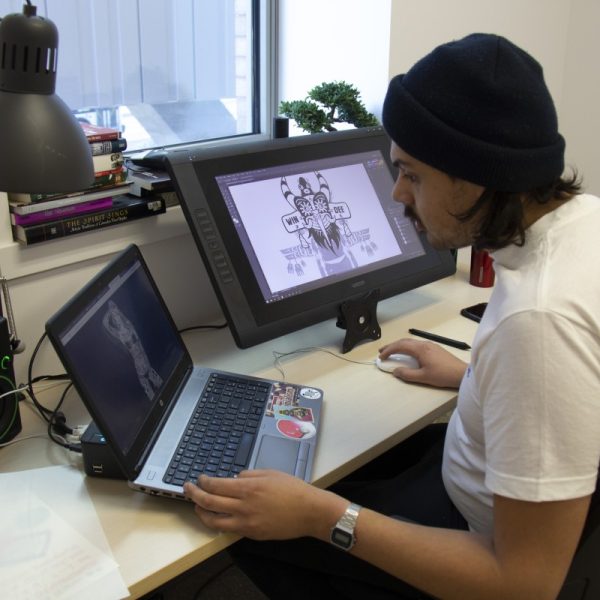
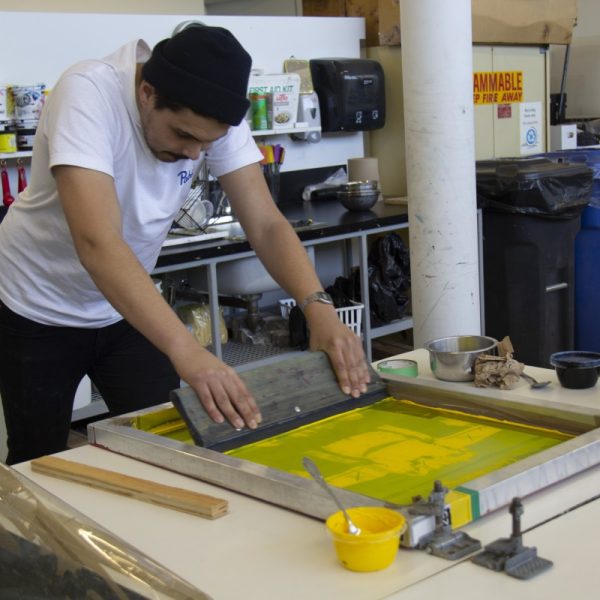
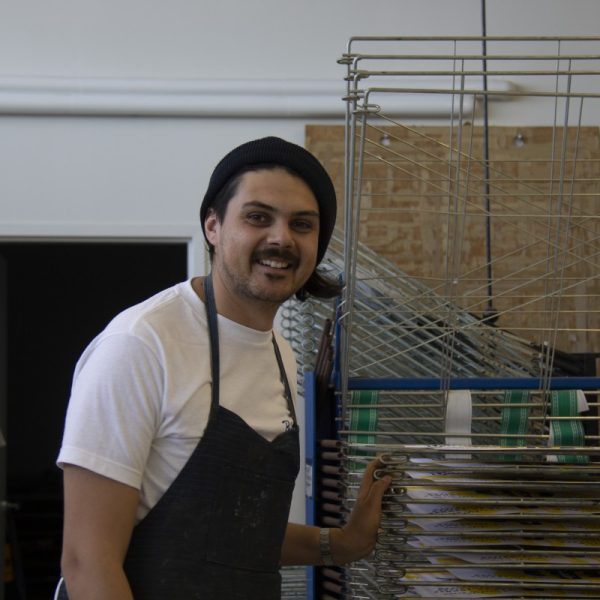
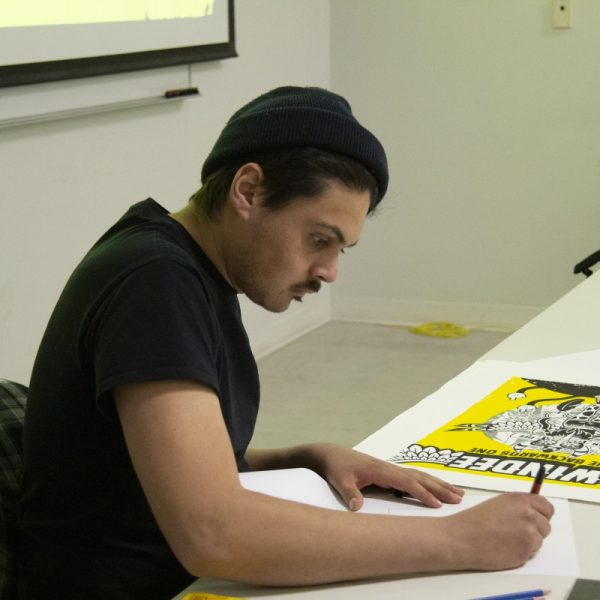
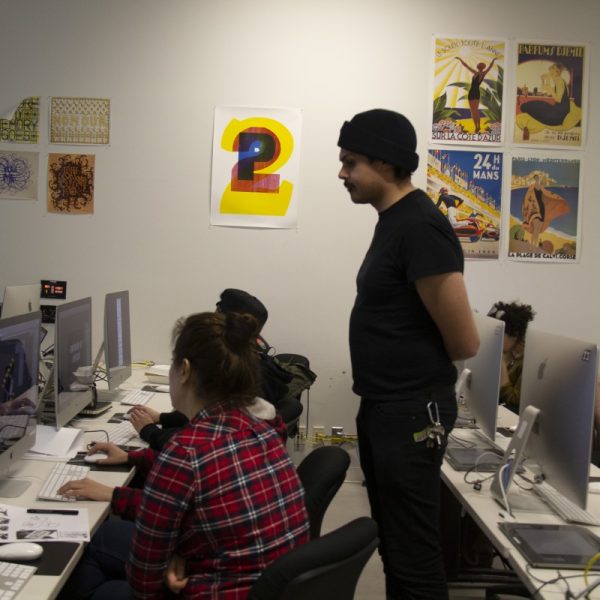
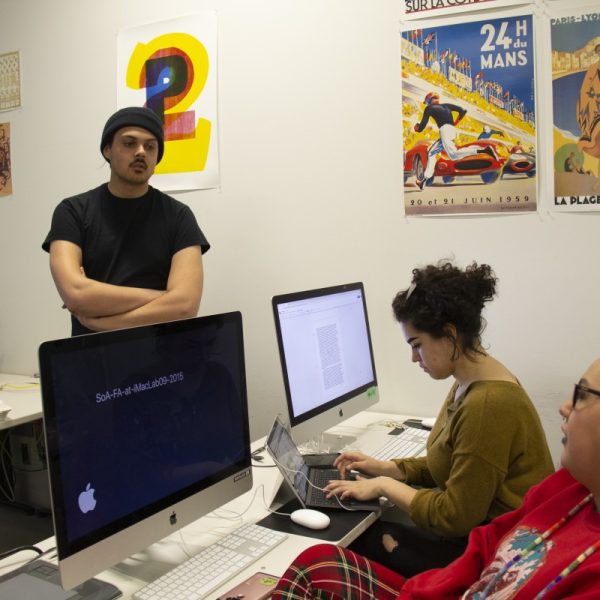
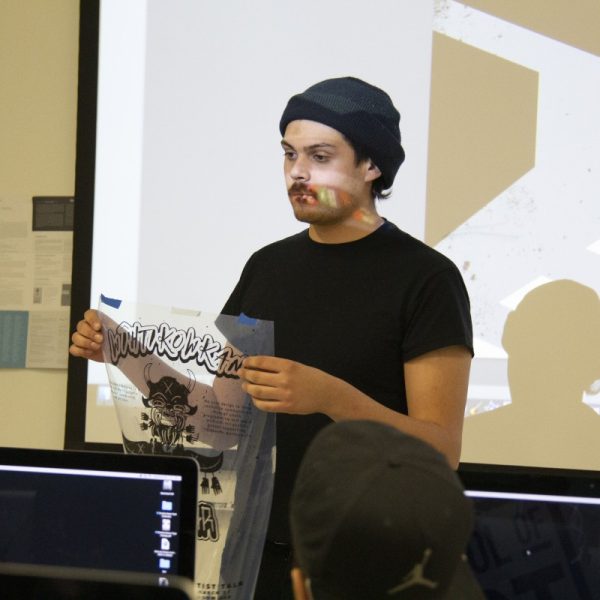
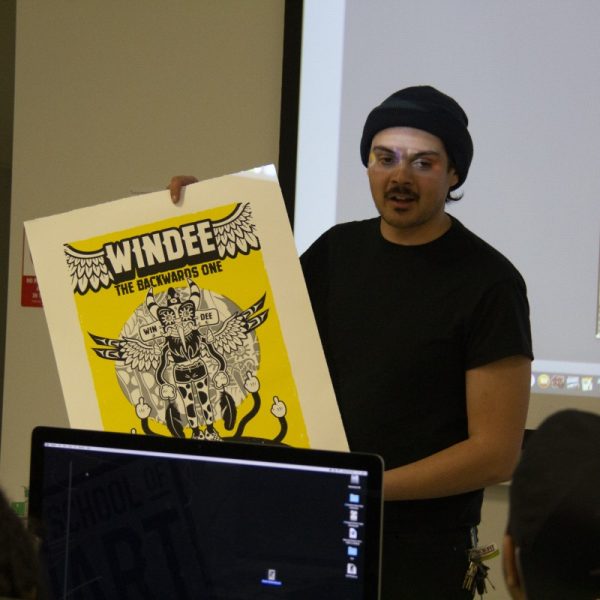
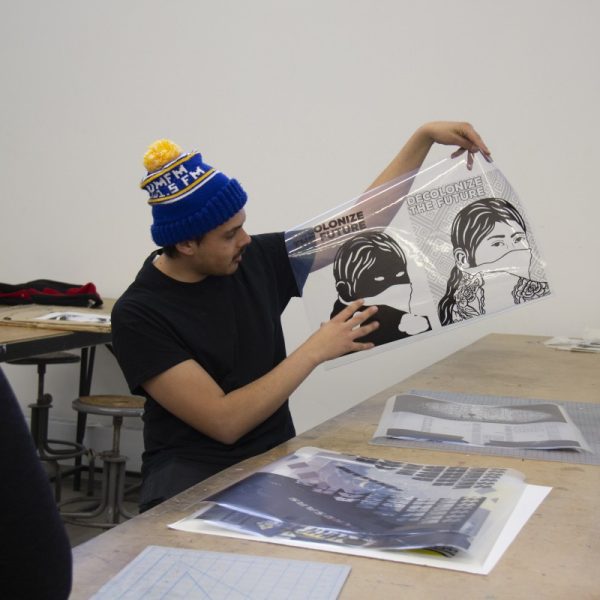
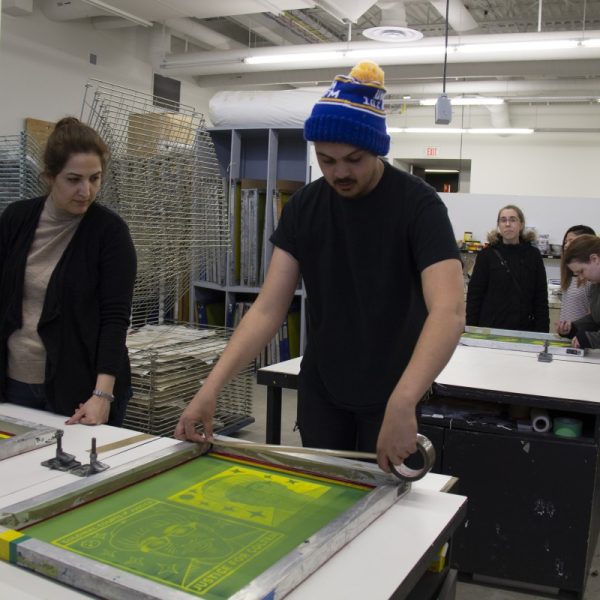
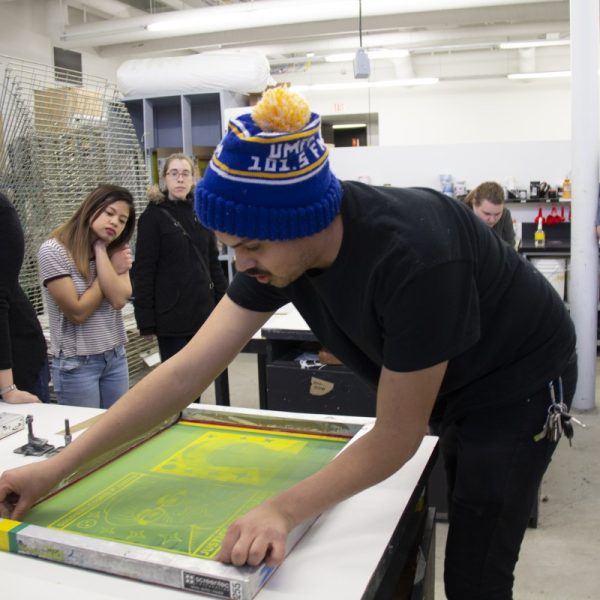
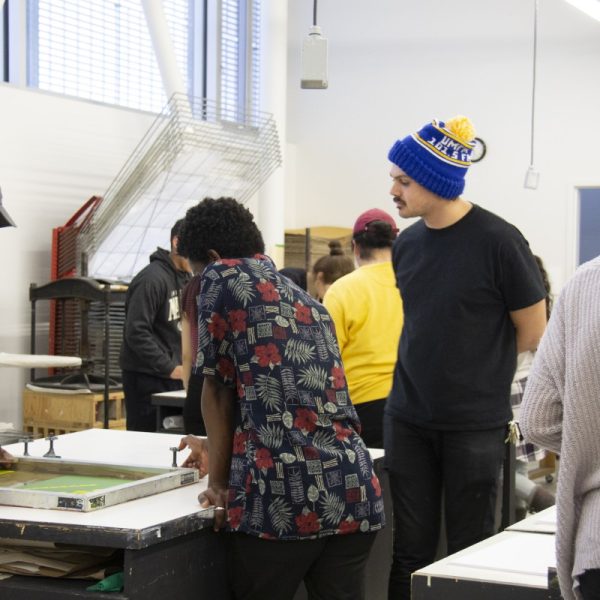
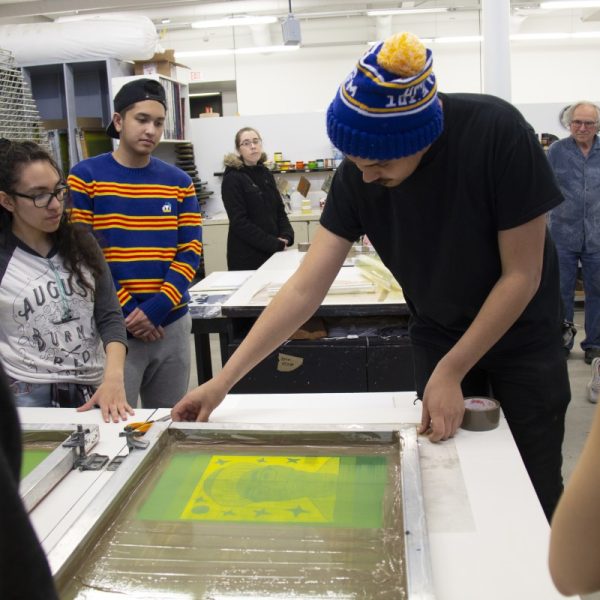
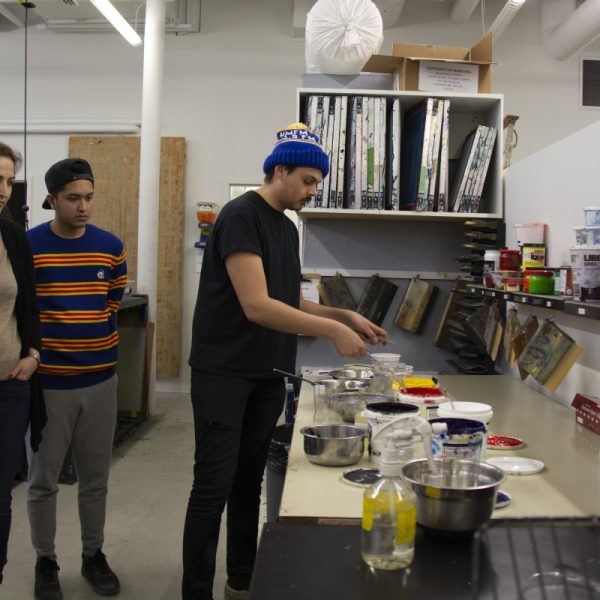
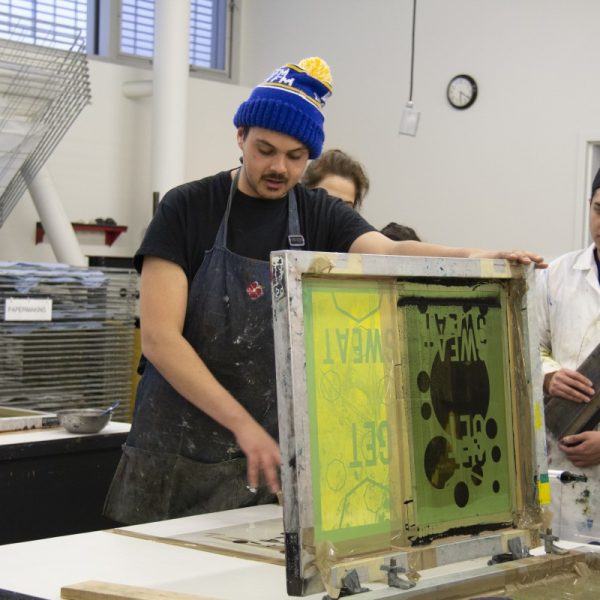
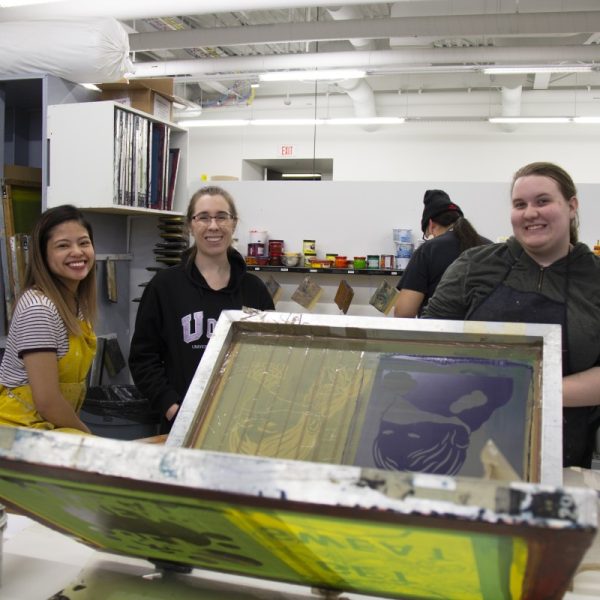
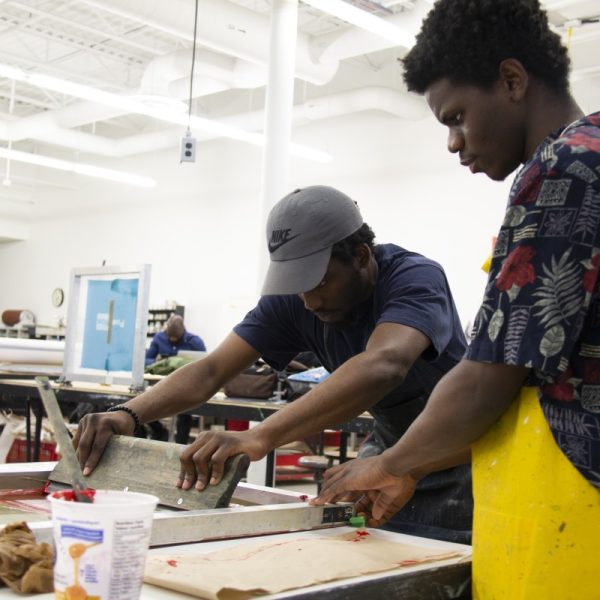
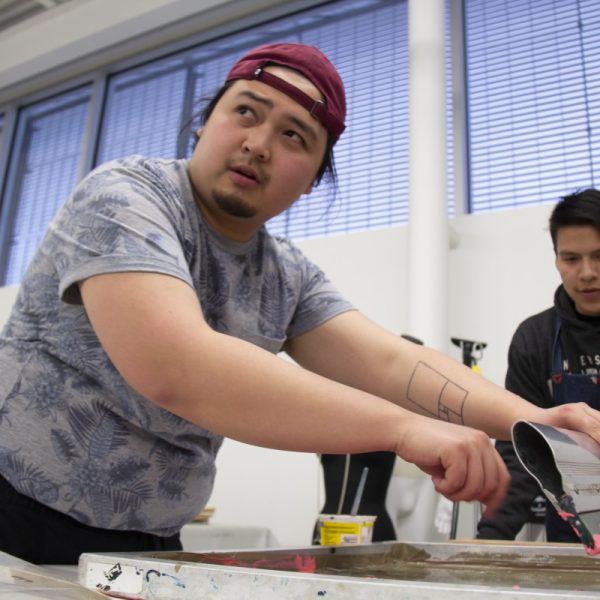
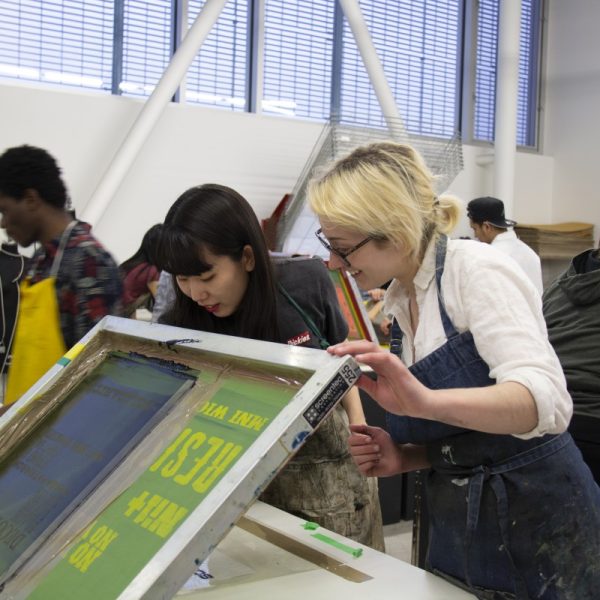
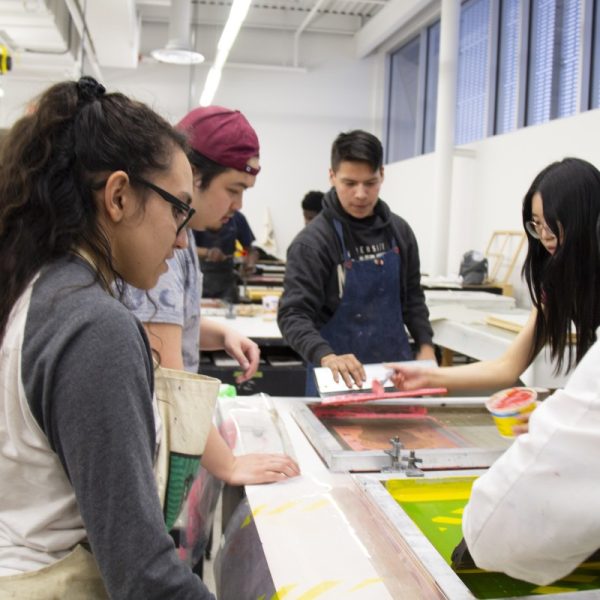
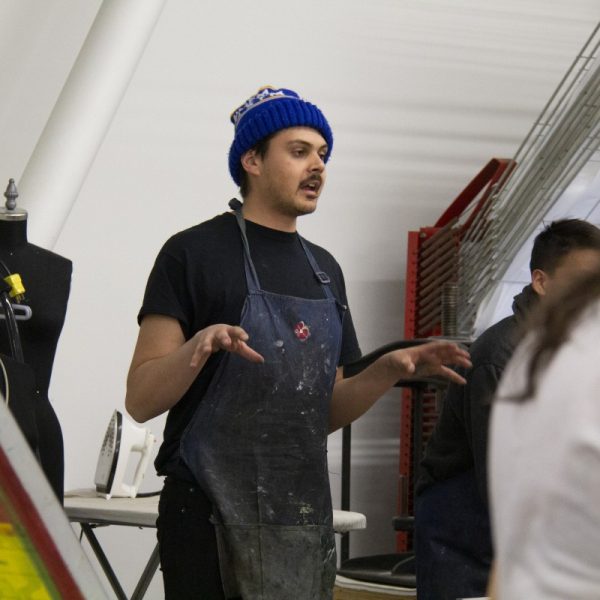
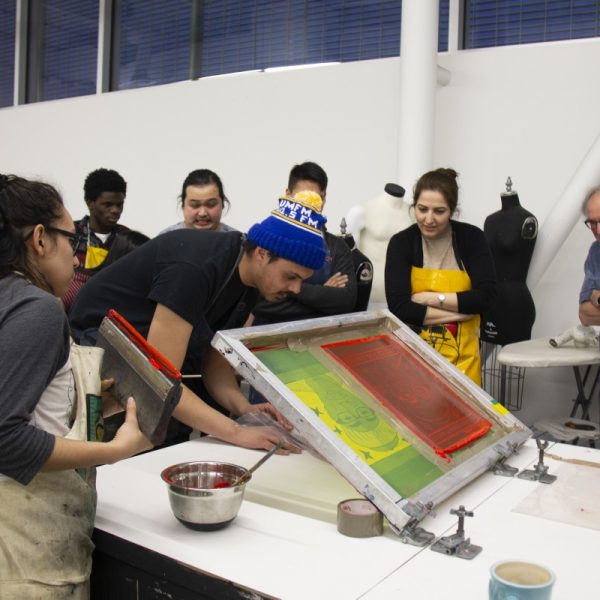
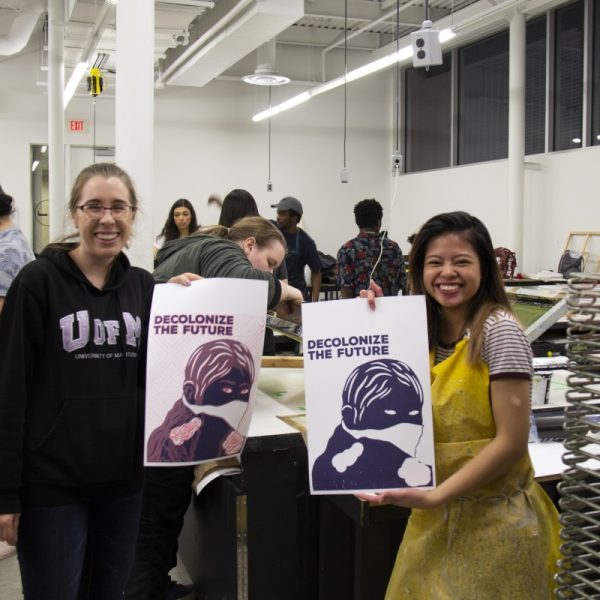
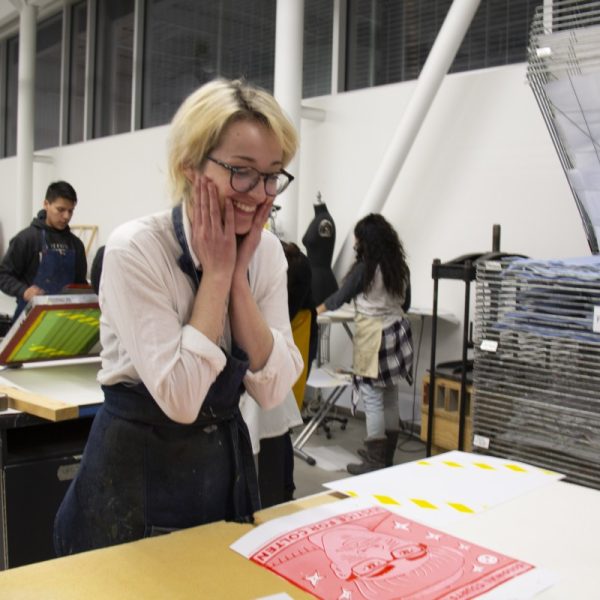
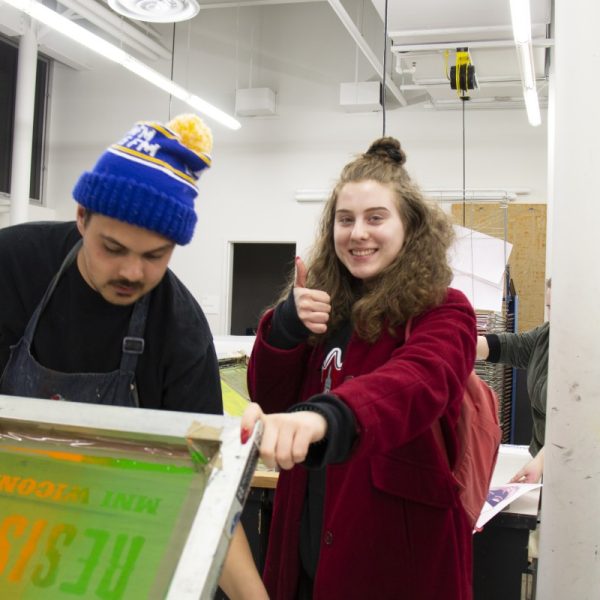
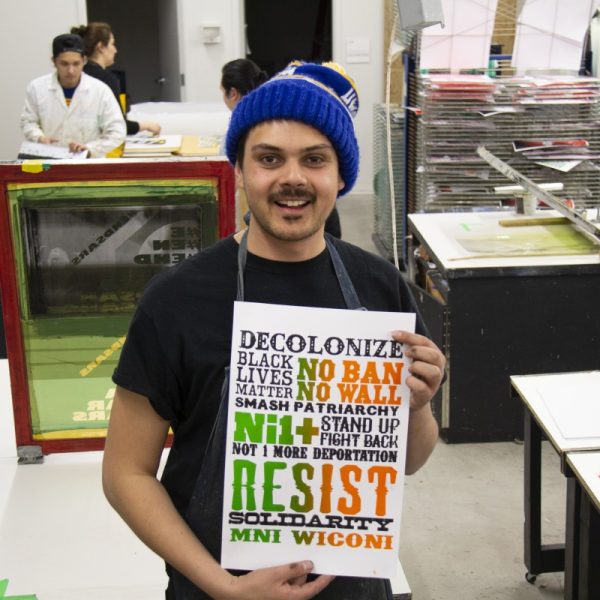
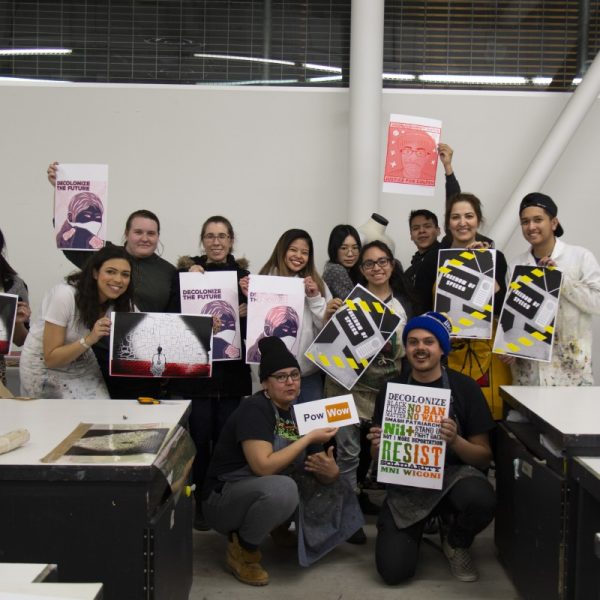
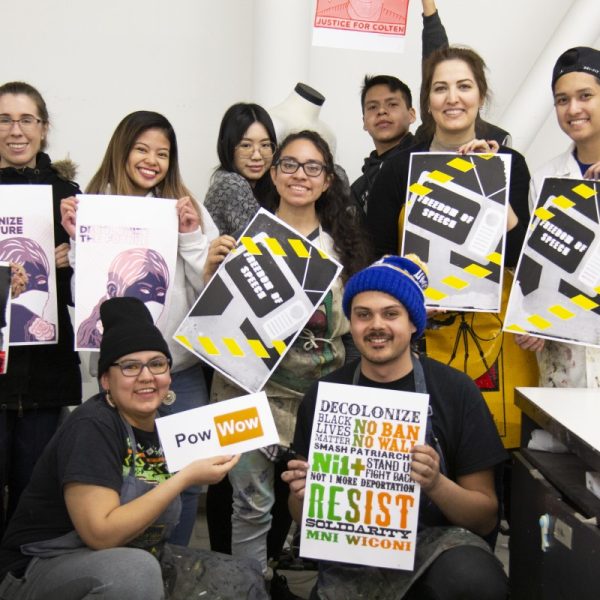
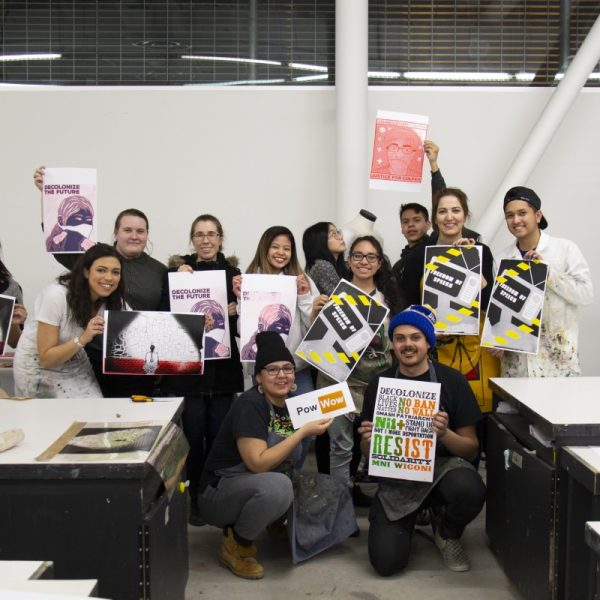
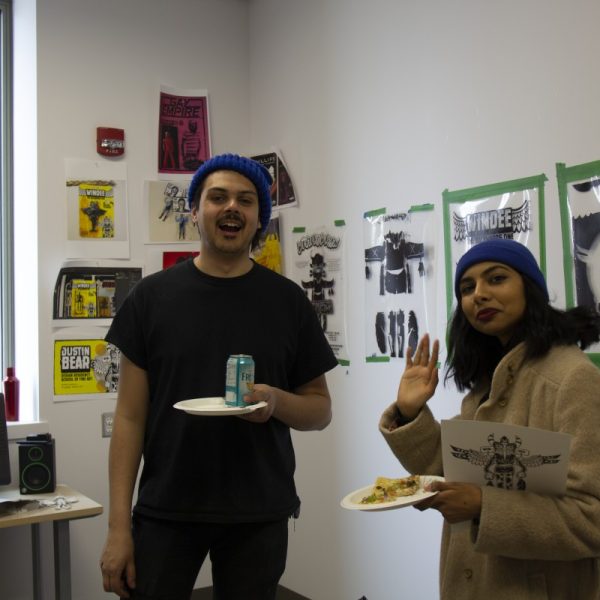
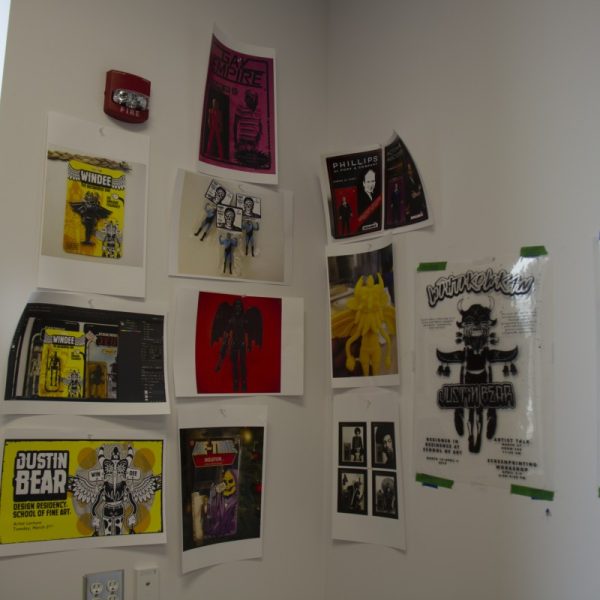
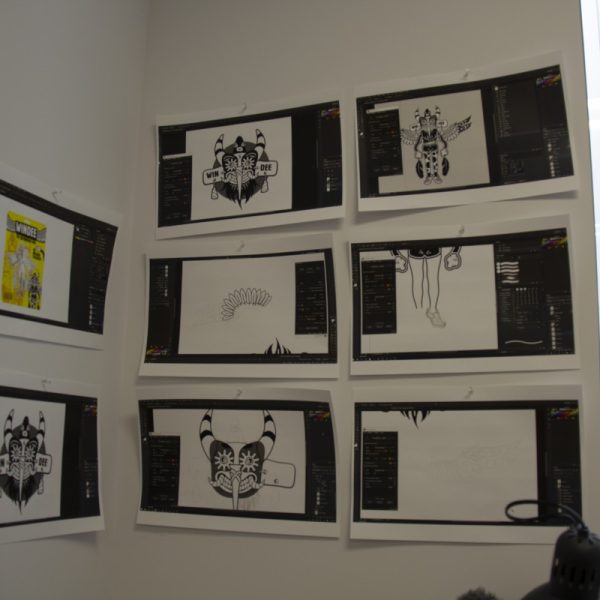
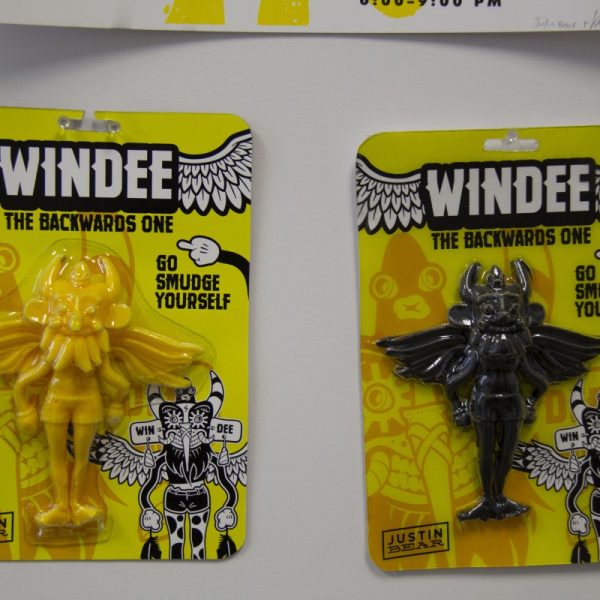
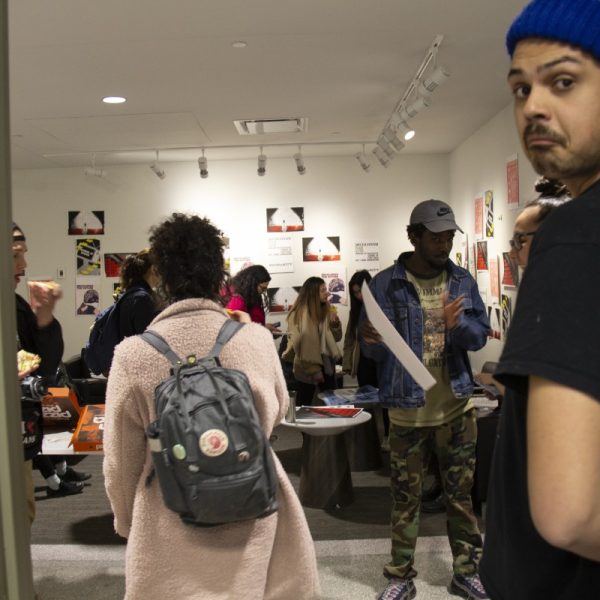
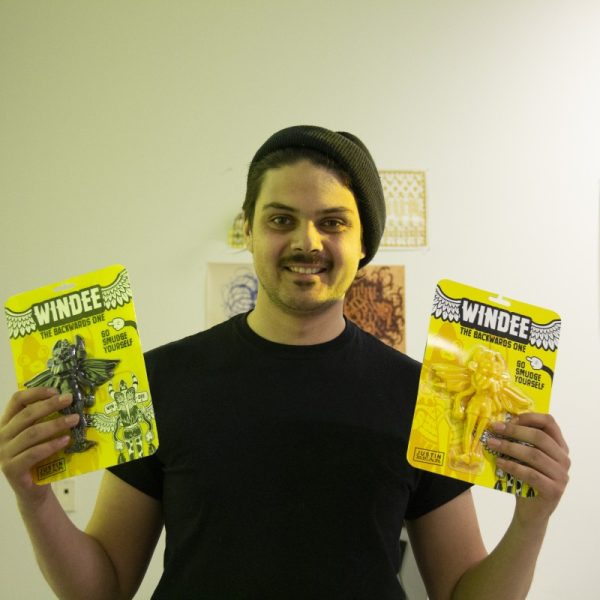
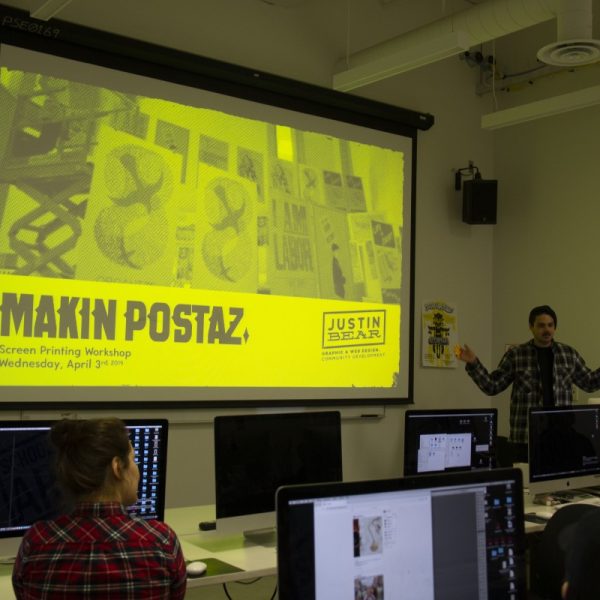
About the work:
Wîhtikowkan is a backwards spirit. They do things all the wrong ways, upside down, in the wrong order, speaking in reverse, and always breaking the rules. In this, they remind us to be critical of normality. Within our normal, where colonial systems of theft, apprehension, imprisonment, and murder have been normalized, the Wîhtikowkan encourages us instead to move backwards to something mysterious and sacred. But sometimes we have trouble seeing them, we think they are bad or useless, or we might fear them or imprison them. In the same way that colonial narratives wrongly portrayed indigenous people as backwards, savage, and uncivilized, to others the Wîhtikowkan appears to be a complete mess or even dangerous in our contemporary society. But maybe it’s us who are walking the wrong path. Maybe backwards is the direction we need to go.
The work ‘Wîhtikowkan’ explores the way the consumer items can act as a critical vehicle for traditional storytelling. The goal is to make a Wîhtikowkan into a sellable consumer item that can move through capitalist markets instead of traditional oral and ceremonial frameworks. Partly, the work is critical of the ways culture is commodified and appropriated by white opportunists (think smudge kits), but it’s also seriously looking at the way traditional support systems and networks have deteriorated leaving indigenous people with limited options to access their culture. In moving backwards (towards our traditional ways of being) for many, the starting line is within the hyper-capitalist consumerist world of Fortnite, Red Bull, Mcdonalds, and Ford F-150s. Despite the information overload many young people experience, with the endless mess of cultural characters, celebrity role models, and identities, the spirits in our culture still exist and move within our lives. ‘Wîhtikowkan’ is an attempt to make them visible again.